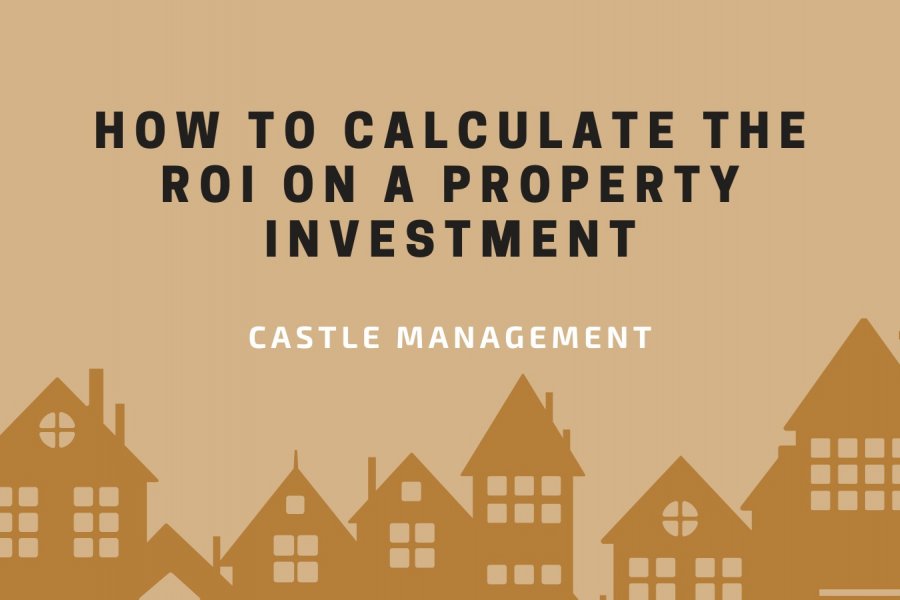
Rental property investing, particularly in multi-family properties, can be a lucrative venture. However, understanding the financial returns on your real estate investment is essential to making informed decisions. ROI, or return on investment, is a critical metric that helps real estate investors gauge the profitability of an investment property.
What Is ROI and Why Is It Important?
ROI measures the financial gain (or loss) from an investment relative to the cost of that investment. For multi-family properties, ROI helps determine whether your rental property is generating a satisfactory return compared to other opportunities in the real estate market.
- Calculating ROI provides clarity about:
- The overall profitability of a property.
- How well the rental property aligns with your financial goals.
- Whether to hold, sell, or reinvest in another rental property.
Key Components of ROI for Multi-Family Properties
Before diving into calculations, it’s important to understand the key components that affect ROI for multi-family investments:
- Property Purchase Price: The cost of acquiring the rental property, including purchase price, closing costs, and associated fees, forms the baseline for ROI calculation.
- Rental Income: Multi-family properties generate revenue through rent. Total annual rental income is a critical factor in determining profitability.
- Operating Expenses: Operating costs include rental property management fees, utilities, repairs, maintenance, insurance, property taxes, and other recurring expenses.
- Financing Costs: If you’ve financed the rental property, your loan payments (principal and interest) will impact your net ROI.
- Vacancy Rate: No rental property stays fully rented all the time. A reasonable allowance for vacancies must be factored into your calculations.
- Appreciation and Tax Benefits: Multi-family properties often appreciate, and tax advantages like depreciation can also influence ROI.

How To Calculate ROI on Multi-Family Properties
Calculating ROI for multi-family properties involves three key steps:
Step 1: Determine Total Investment Costs
Start by calculating all the costs associated with acquiring and maintaining the rental property. Include:
Purchase price.
- Closing costs (e.g., legal fees, title insurance).
- Initial repairs or renovations.
- Yearly operating costs.
For example:
Purchase price: $800,000.
Closing costs: $40,000.
Initial renovations: $60,000.
Annual operating expenses: $50,000.
Total Investment Costs = $950,000
Step 2: Calculate Net Operating Income (NOI)
Net Operating Income is the income generated from the property after subtracting operating expenses but before accounting for taxes and financing costs.
Net Operating Income = Gross Rental Income − Operating Expenses
Example:
Total monthly rent (5 units): $1,500 × 5 = $7,500
Annual rental income: $7,500 × 12 = $90,000
Operating expenses: $50,000/year
NOI = $90,000 - $50,000 = $40,000
Step 3: Calculate ROI
ROI can be calculated in different ways depending on how the investor purchased the rental property, whether it's financed or purchased outright.
For Cash Purchases
Cash-on-Cash Return = (Annual Cash Flow (NOI) ÷ Total Cash Invested) × 100
Using an example:
Annual Cash Flow (NOI): $20,000
Total Cash Invested: $250,000
Cash-on-Cash Return = ($20,000 ÷ $250,000) × 100 = 8%
This means the investor is earning an 8% return on the cash they invested in the property.
For Financed Purchases
When a mortgage is involved, the calculation changes slightly. You’ll need to account for the down payment, loan amount, and annual payments of the investment.

Example:
Down payment: $190,000 (20% of $950,000)
Annual mortgage payments: $36,000 (monthly payment of $3,000)
To calculate ROI:
ROI (Financed) = [(Annual NOI − Annual Mortgage Payments) ÷ (Down Payment + Other Investment Costs)] ×100
Using the example above:
NOI: $40,000
Annual mortgage payments: $36,000
Total cash investment: $190,000 (down payment)
ROI = [($40,000 - $36,000 ) ÷ $190,000] × 100 = 2.1%
Factors That Influence ROI in Multi-Family Investments
ROI is not a static metric; it can be influenced by several variables. Here’s what you should keep in mind to optimize returns:
1. Maximize Rental Income
Keep units updated and competitive with market standards to attract quality residents and charge premium rents.
Explore value-added strategies such as adding amenities, parking, or utility billing systems.
2. Minimize Operating Costs
- Regular maintenance reduces costly repairs in the long run.
- Energy-efficient upgrades can cut utility costs.
Hiring a reliable management company ensures streamlined operations and controlled expenses.
3. Reduce Vacancy Rates
Effective marketing and tenant retention strategies keep units occupied.
Professional managers can ensure a smooth leasing process and quick turnarounds.
4. Take Advantage of Tax Benefits
Depreciation, interest deductions, and other tax benefits can enhance your real estate investment’s profitability. Consult with a tax advisor to maximize these benefits.

Benefits of Working With a Professional Property Management Company
Multi-family properties can be complex to manage, especially if you own multiple units. Hiring a professional property management company can significantly improve your ROI. Here’s how:
- Efficient Tenant Management: Property managers handle tenant screening, leasing, and renewals, and reducing vacancy rates.
- Streamlined Maintenance: Routine inspections and preventive maintenance reduce costly repairs and extends the rentals lifespan.
- Legal Compliance: Property managers stay updated on landlord-tenant laws and ensure your property complies with regulations, minimizing the risk of lawsuits.
- Cost Management: With access to vetted contractors and bulk service discounts, property management companies can save you money on repairs and upgrades.
Bottom Line
Calculating ROI is essential for understanding the profitability of multi-family investments, especially in the context of real estate investing. By carefully analyzing your costs, income, and market trends, you can make informed decisions that align with your financial goals and optimize your investment portfolio.
Remember to revisit your ROI calculations periodically to account for changes in expenses, rents, and market conditions, ensuring the continued success of your real estate investing strategy.
For multi-family property investors, working with a professional property management company like Castle Management can provide invaluable expertise and streamline operations, ensuring that your investment remains a profitable and hassle-free venture. Investing wisely today can lead to significant financial rewards in the future. If you need help in maximizing your income-earning potential, contact Castle Management.
